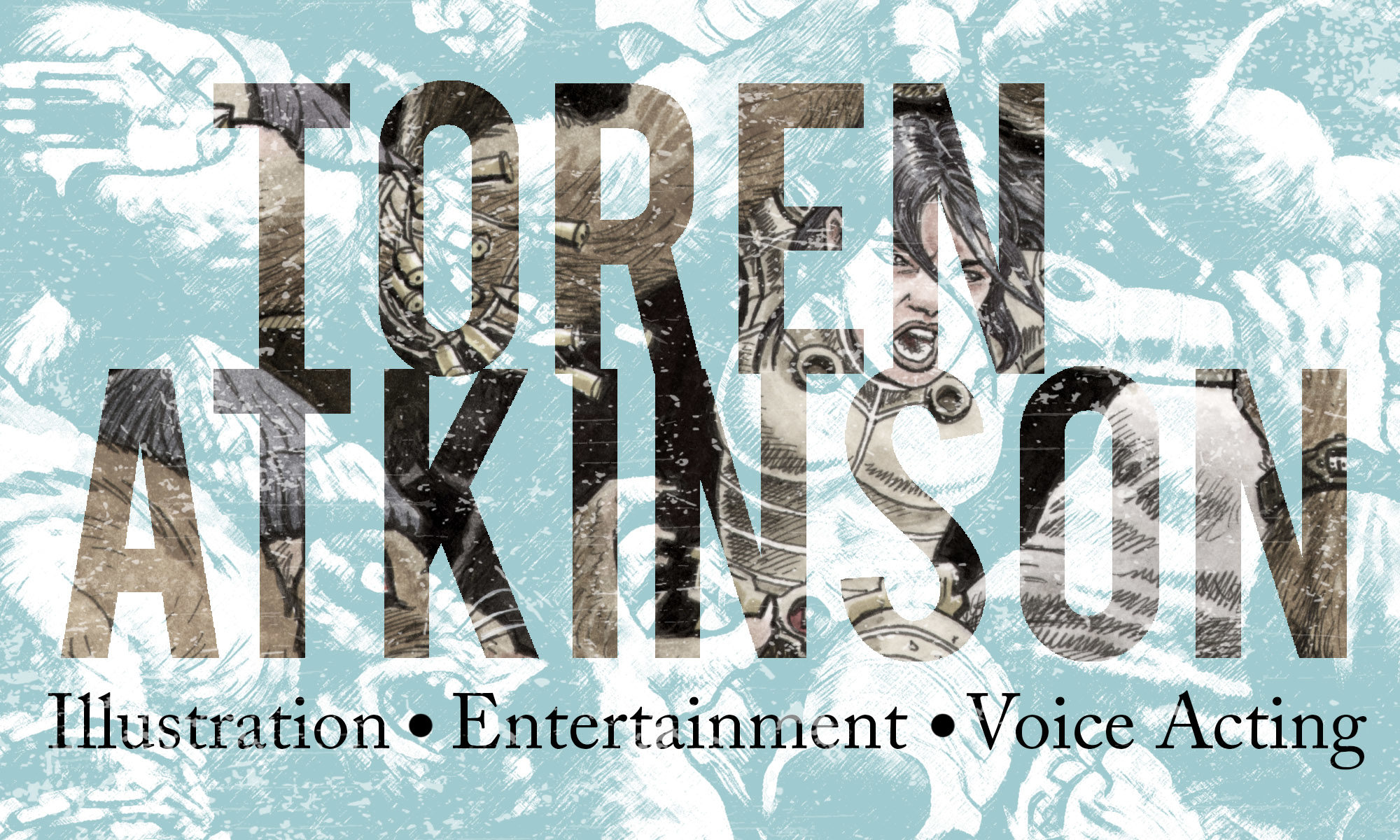I love the snow. It makes me smile.
I forgot to mention that yesterday I received notice from our dorky (I almost didn’t put in an adjective but then I thought – pff, he’s never going to read this) building manager that all of the storage lockers in the building were broken into. Nothing was stolen from ours, and apparently the only victim of the burglery was the dork. Sucks for him. We didn’t really have anything of value in there except for two fans and my bike, which I haven’t used in at least 3 years. I think the chain needs tightening but I never got around to taking it into a shop. I’d like to ride my bike some times but it can be scary in the big city. Also people look goofy on bikes. There, I said it. That never stopped me when I used it to get to work, but still…people look goofy on bikes.
I got some very nice mail today. One package was a felt Cthulhu doll from Tim Emrick (I posted pics on this blog of them a little while ago). Thanks Tim, I really appreciate it and I will continue to do so! It was very kind of you to send that. The other thing was the DVD of Dream-Quest of Unknown Kadath – the animated adaptation of Lovecraft’s short novel in which I provided the voice for the main character. I avoided putting it in all day because I was cringing at the idea of listening to myself voice act badly, but when I finally put it in I was not too terribly embarrassed. Slightly embarrassed, but not as bad as I thought it would be. Apart from that, it’s pretty neat. The animation style & direction surprised me pleasantly, and the music is good but it’s a bit too loud (sometimes it’s hard to hear the voices). Also I think it could stand to have more quiet, music-less scenes. But that’s a minor issue. It’s a very strong effort and I am pleased that I was given the lead role.
Yesterday I printed out the first half of my diaries for the year 2003 (not to be confused with this blog, although many entries from the blog are in the diaries). Sixty-four pages in an 8 point font and that’s only up to July. Come January I am probably going to send out an email to everyone about my experiences in 2003. The first time I did that was last year, as many of you know. It’s very hokum (I was going to say jejune but I don’t know what that means) and lame, I know – but that’s what this time of year is all about. I picture Cinnamon J. Scudworth at his desk writing “dear family and friends, is it possible a year has passed since my last impersonal, over-informative, photocopied holiday update?” to inspire me. So, get your spam filters ready for that one. This year’s will probably be a lot shorter than last year’s though, so be thankful.
And now that it’s over, I present The True Meaning of Christmas (mostly stolen from another website, but pasted & edited here for your convenience).
In Rome, Saturnaliaa holiday in honor of Saturn, god of agriculturewas celebrated. Beginning in the week leading up to the winter solstice and continuing for a full month, Saturnalia was a hedonistic time, when food and drink were plentiful and the normal social order was turned upside down. For a month, slaves would become masters. Peasants were in command of the city. Business and schools were closed so that everyone could join in the fun. In addition, members of the upper classes often celebrated the birthday of Mithra, god of the sun, on December 25. For some Romans, Mithra’s birthday was the most sacred day of the year. In the early years of Christianity, Easter was the main holiday; the birth of Jesus was not celebrated. In the fourth century, church officials decided to institute the birth of Jesus as a holiday. Unfortunately, the Bible does not mention date for his birth. Pope Julius I chose December 25 in an effort to adopt and absorb the traditions of the pagan Saturnalia festival. Holding Christmas at the same time as traditional winter solstice festivals increased the chances that Christmas would be popularly embraced. On Christmas, believers attended church, then celebrated raucously in a drunken, carnival-like atmosphere similar to today’s Mardi Gras. Each year, a beggar or student would be crowned the “lord of misrule” and eager celebrants played the part of his subjects. The poor would go to the houses of the rich and demand their best food and drink. If owners failed to comply, their visitors would most likely terrorize them with mischief. Christmas became the time of year when the upper classes could repay their real or imagined “debt” to society by entertaining less fortunate citizens.
So, next year – more terrorizing with mischief, I think.

